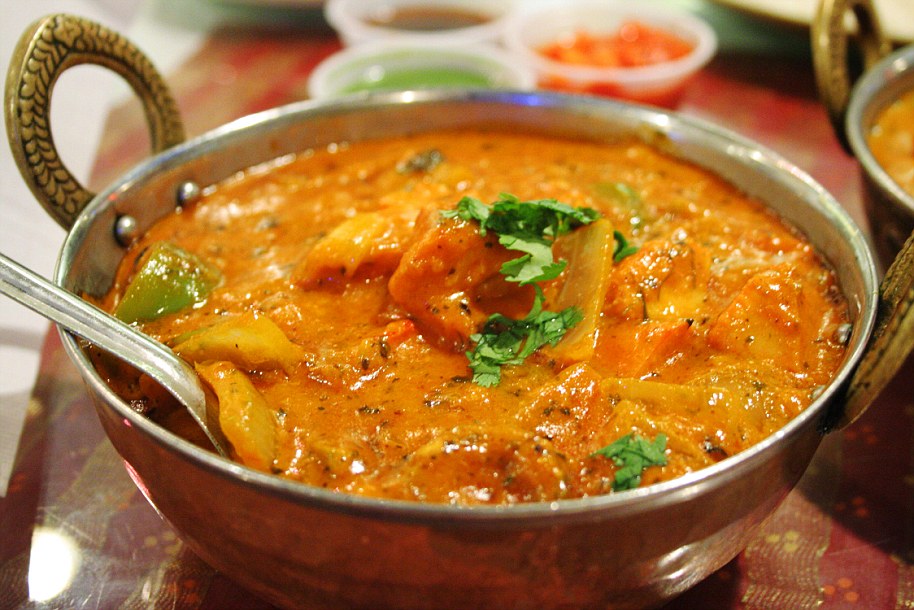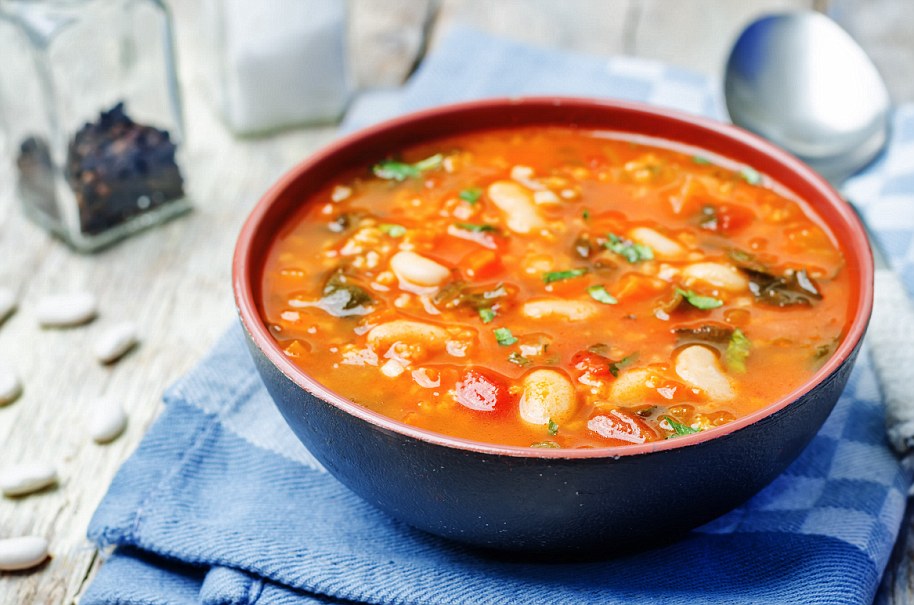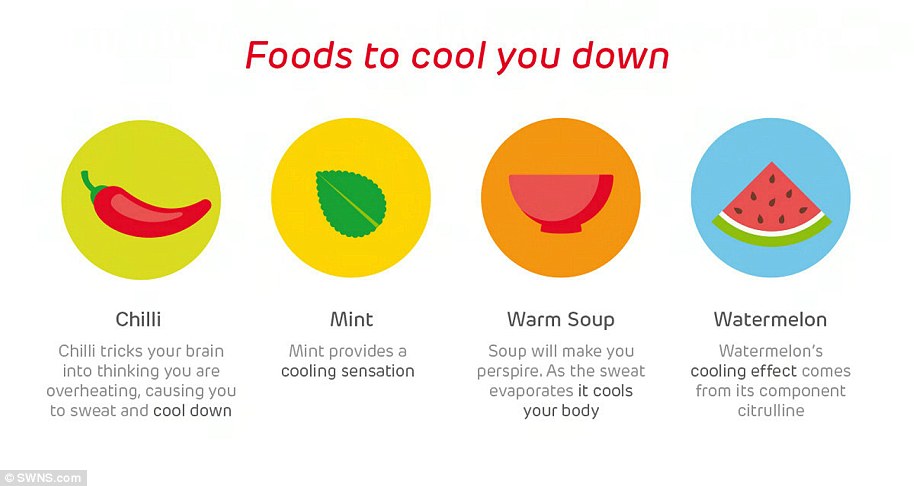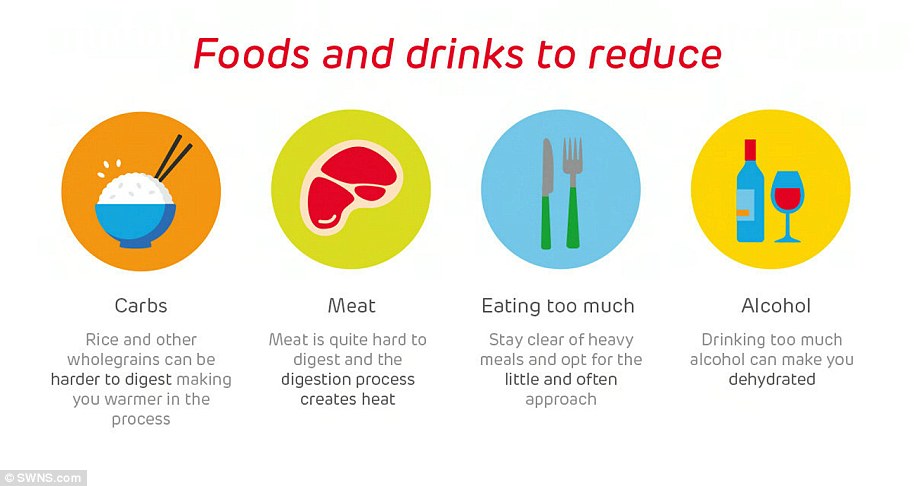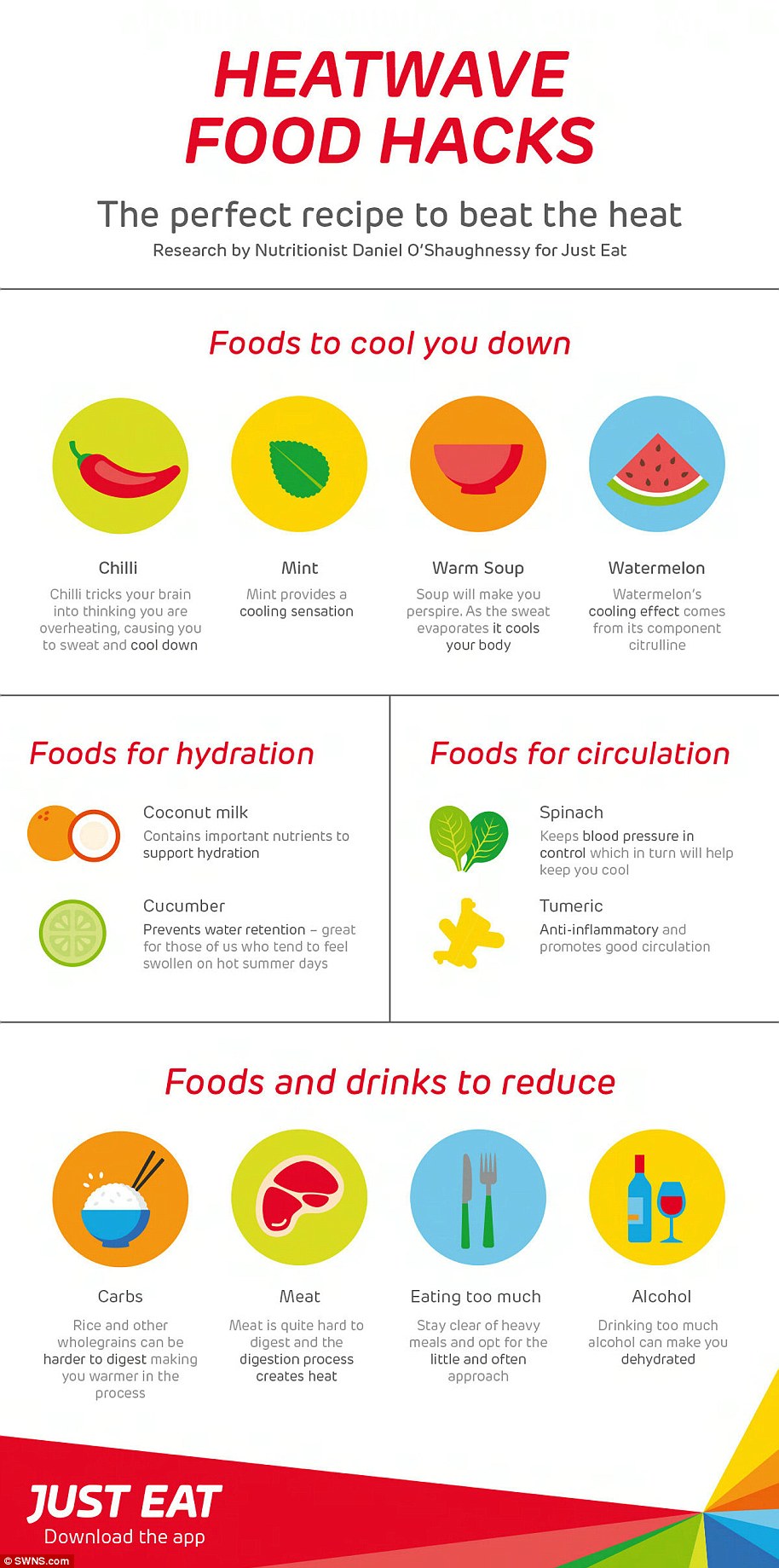The number of people dying from unbearable heat in England and Wales could increase fiftyfold because of climate change, experts have warned.
Scientists analysed the impacts of 15 different scenarios over the next 50 years, combining different levels of global warming with varying levels of adaptation, an aging population and regional climatic differences.
Their findings, which provide ‘the most comprehensive projections’ for England and Wales to date, say that in a worst-case scenario there could be 34,000 annual heat-related deaths by 2070.
This is more than 50 times higher than today’s baseline of 634 annual heat-related deaths, they warned.
Even under the most optimistic scenario, heat-related deaths will increase up to sixfold, the study found.
And they warned the findings ‘paint a sobering picture of the consequences of climate change’.
Lead author Dr Rebecca Cole from the London School of Hygiene & Tropical Medicine, said: ‘How we as a society adapt to our changing climate will have a tremendous effect on people’s wellbeing.
‘Our research shows how increases in heat-related deaths are not just a consequence of rising temperatures — they’re also driven by how we build our cities, care for vulnerable populations, and address social inequality.’
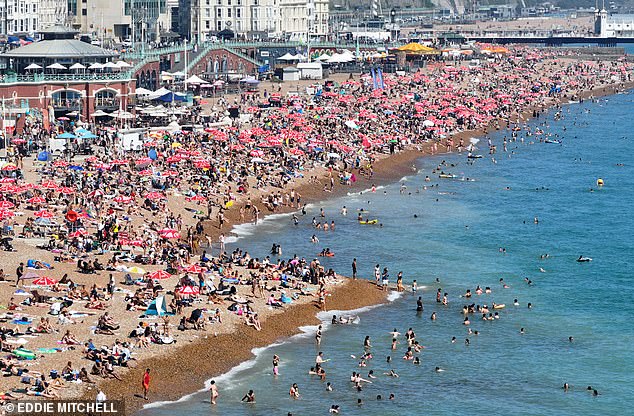
Researchers said the annual number of heat-related deaths in the UK could rise up to fiftyfold due to climate change. Pictured: Brighton beach during a heatwave on 30 June

Across June, two heatwaves were confirmed across England and Wales – one in the third week of the month, and the second closing out the month. Pictured: London on 20 June
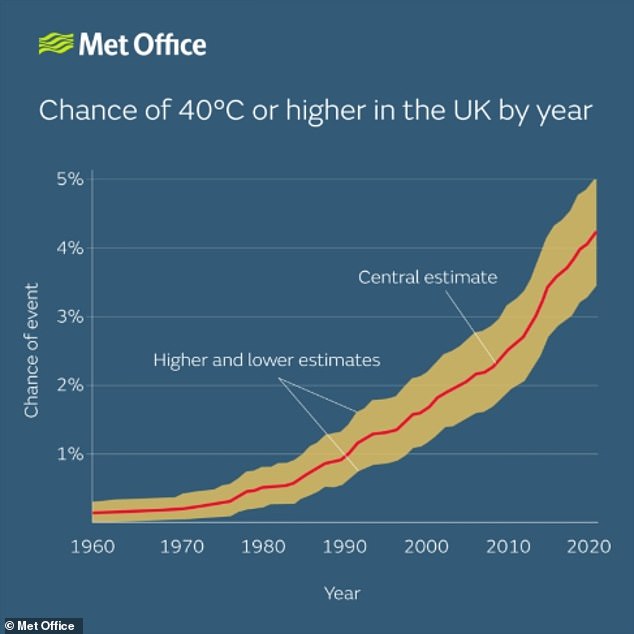
Scientists warn that the chances of the UK hitting 40°C in the next 12 years are now 50/50, 60 times higher than the chances in 1960
The record-setting hot summer of 2022, which saw temperatures break the 40°C mark for the first time in the UK, saw 2,985 excess heat deaths, the researchers said.
They warned this could become the ‘new normal’ by 2050, as global warming triggers ever-growing temperatures.
In January, the World Meteorological Organization (WMO) confirmed that 2024 was the warmest since records began, reaching 1.55°C above pre-industrial levels.
And recent predictions show temperatures are expected to continue at or near record levels for the next five years.
As part of the new study, experts set the most optimistic scenario at 1.6°C warming, with high levels of adaptation to protect against the effects of a warming climate.
Even under this scenario, annual heat-related deaths would rise to 3,007 per year by the 2050s, 4,004 by the 2060s and up to 4,592 in the 2070s, they said.
Their worst-case scenario sets global warming at 4.3°C with minimal adaptation, which could lead to 10,317 heat-related deaths per year in the 2050s, 19,478 by the 2060s and 34,027 in the 2070s.
Senior author Dr Clare Heaviside, from University College London, said: ‘Our collaborative research paints a sobering picture of the consequences of climate change, under a range of potential social and economic pathways.

Even under the most optimistic scenario, heat-related deaths will increase up to sixfold, the study found. Pictured: People enjoying the sunshine on Jubilee Beach in Southend
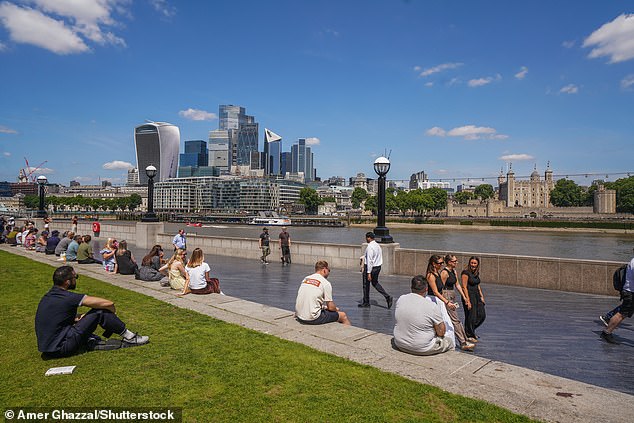
Prior to humans affecting the climate with greenhouse gasses, June would only see a day reaching 32°C (90°F) once every 2,500 years. Now, it occurs once every 25. Pictured: People enjoying the sun in Potters Fields, London
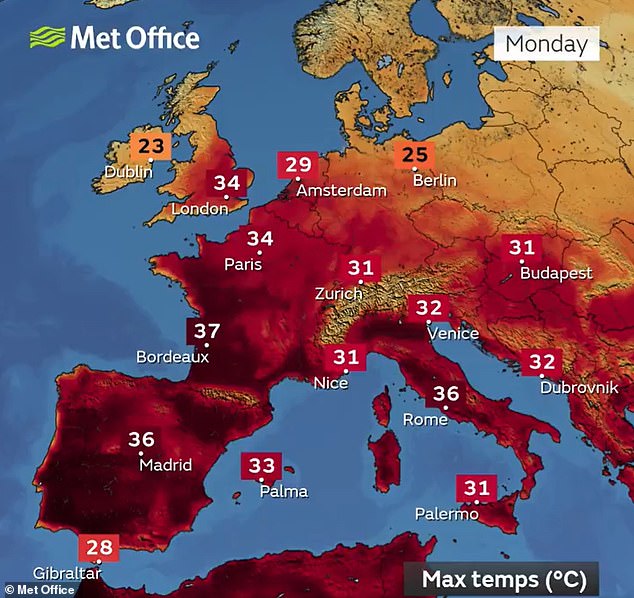
The recent temperatures plaguing Europe are caused by a heat dome. Although these events are natural, the resulting heat wave has been made significantly hotter by climate change
‘Over the next 50 years, the health impacts of a warming climate are going to be significant.
‘We can mitigate their severity by reducing greenhouse gas emissions and with carefully planned adaptations, but we have to start now.’
Potential adaptations could include steps such as adopting passive cooling systems like cool and green roofs, better building ventilation and heat management.
Active cooling systems such as air conditioning could also help, alongside shady urban forests and greater community support for vulnerable populations.
The researchers also warned that over the next 50 years the population of England and Wales is expected to age significantly, with the greatest increase in population size for those aged 65 and above.
Most previous research into the future impact of heat mortality didn’t factor in the impact of an ageing population, leading to an underestimation of its mortality, they said.
Overall, they found heat mortality rates in the South are generally projected to increase more than rates in the North.
The findings were published in the journal Plos Climate.

Although many people enjoy warmer weather, temperatures exceeding 28°C (82.4°F) can be dangerous, especially for elderly people. Pictured: A woman sunbathes at St James’s Park in London today as temperatures begin to rise
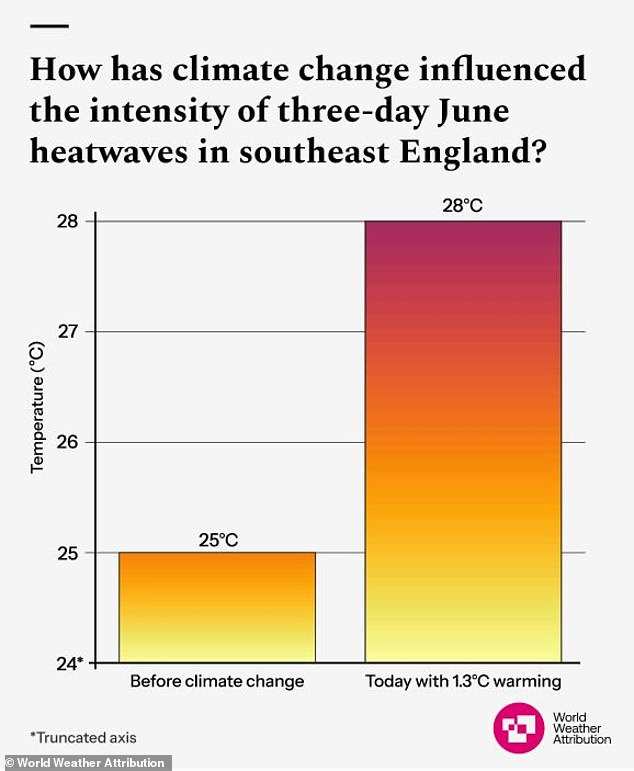
Scientists found that three-day heatwaves in southeast England are now 3°C (5.4°F) hotter due to human-caused climate change heating the planet
Heatwaves are expected to become more frequent and more intense in coming decades in the UK.
The UK’s most recent heatwave, which saw temperatures reach 35°C, were caused by global warming, the Met Office said.
‘Past studies have shown it is virtually certain that human influence has increased the occurrence and intensity of extreme heat events such as this,’ said Dr Amy Doherty, Met Office Climate Scientist.
‘Numerous climate attribution studies have shown that human influence increased the chance that specific extreme heat events would occur, such as the summer of 2018 and July 2022.
‘Our Met Office climate projections indicate that hot spells will become more frequent in our future climate, particularly over the southeast of the UK.
‘Temperatures are projected to rise in all seasons, but the heat would be most intense in summer.’
The warning comes as the Met Office confirmed that last month was England’s hottest June on record.
Average temperatures hit a balmy 16.9°C – the highest recorded since the series began in 1884.


